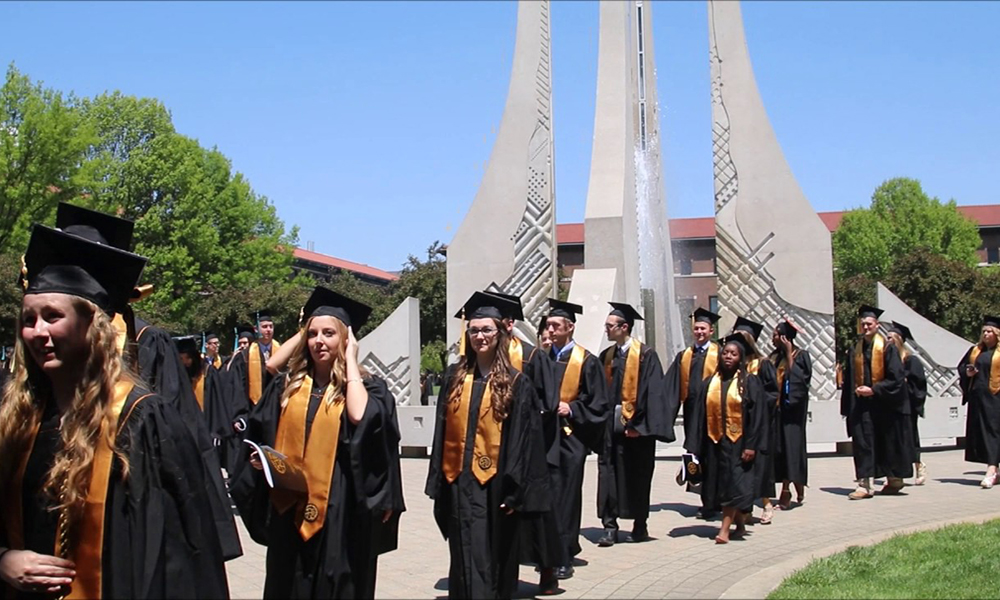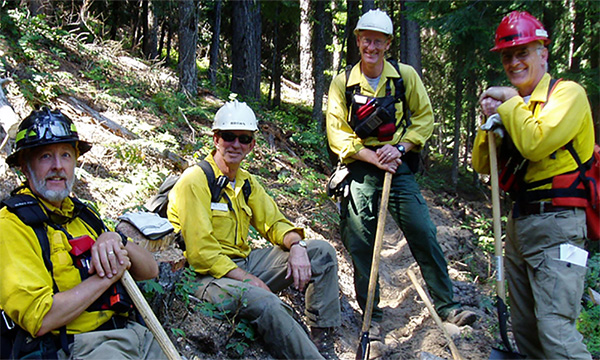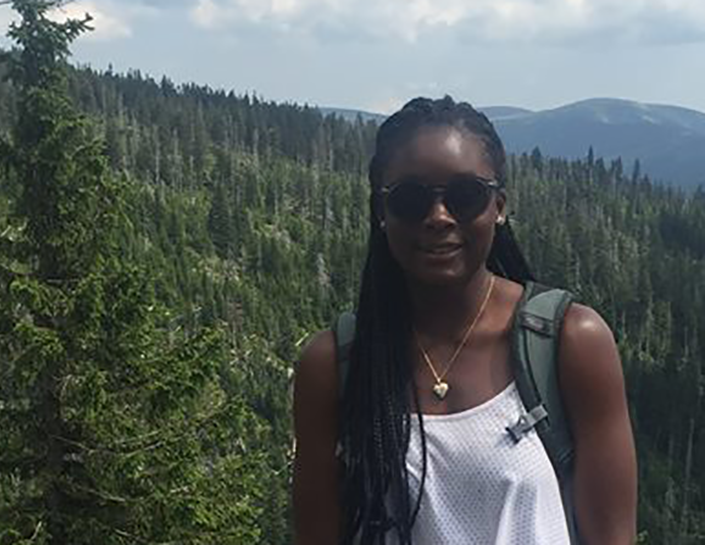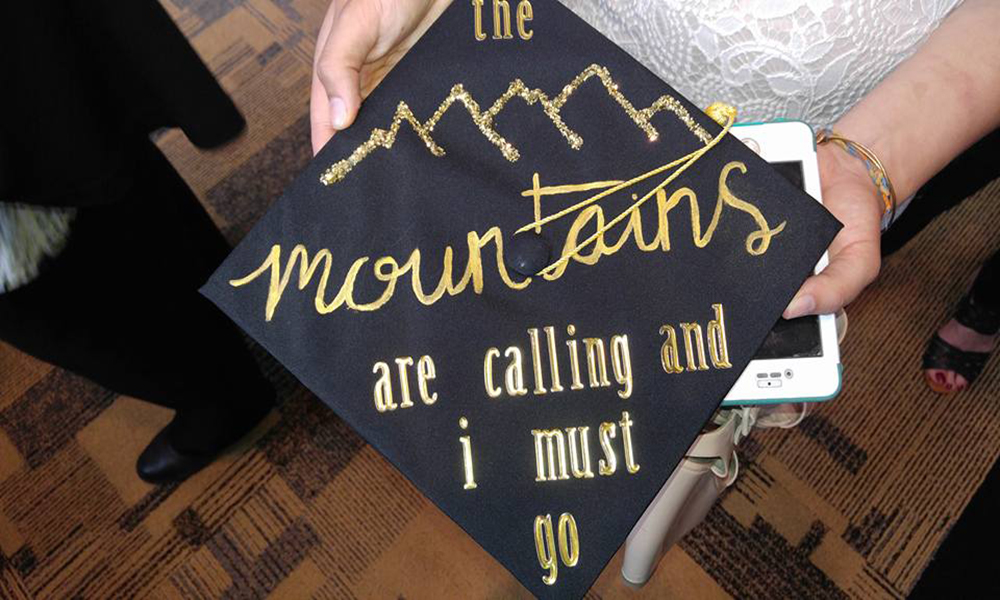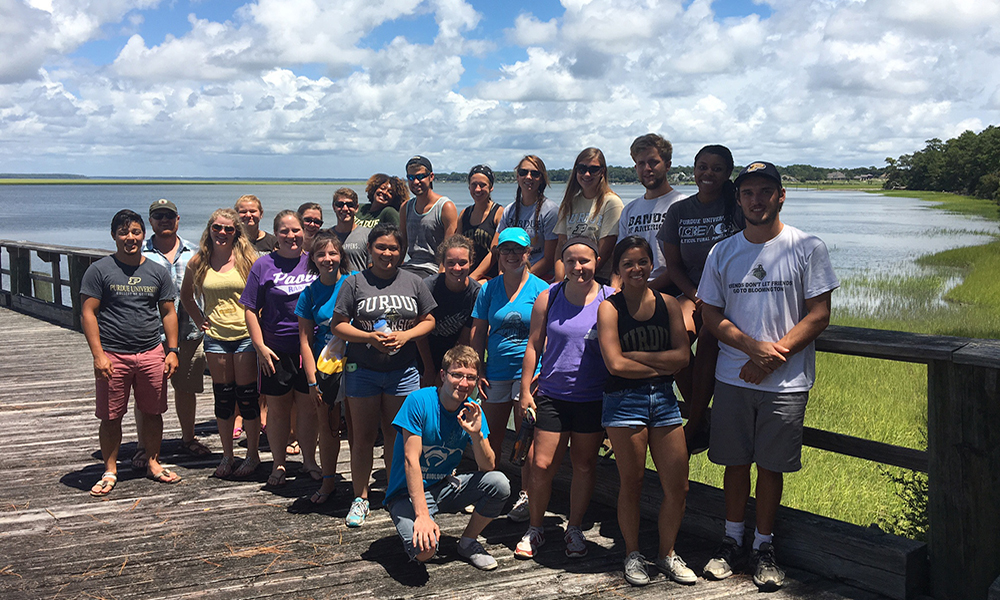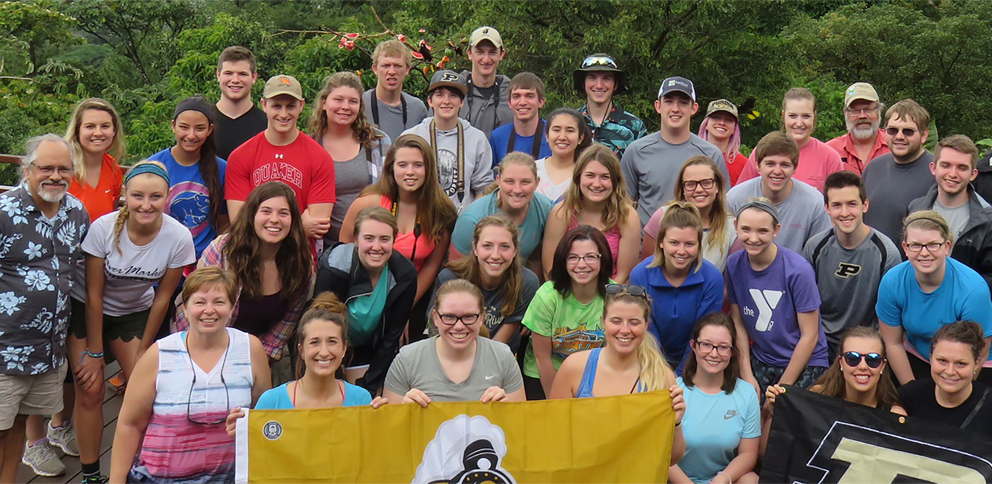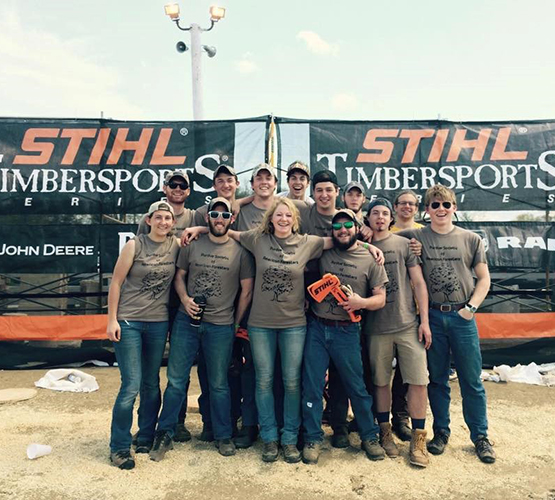Summer Practicum
Forestry students have been retreating to the woods for over 80 summers, gaining first-hand knowledge and practical field experience no classroom lecture can match. And while many schools are scaling back their summer camp programs, Purdue has expanded the program to include students majoring in aquatic sciences and wildlife.
This practicum is field instruction and practice typically during the summer following the sophomore year. This 5-week practicum is a required course series for all aquatic sciences, forestry, and wildlife majors in our department. All students focus on land measurement and surveying, inventory of forest, wildlife, aquatic resources and integrated resource management. Followed by specific modules in fisheries, forestry and wildlife management. Students pay university tuition plus a fee for living facilities and subsistence.
At this time, only students who are enrolled as majors in forestry, aquatic sciences and wildlife are permitted to enroll in this course series.
This summer practicum takes place in Iron River, Michigan at a well-established camp with furnished cabins, a fully staffed kitchen, and facilities to house our classes. Transportation between Purdue and Summer Practicum is provided, but optional.
Upcoming FNR Summer Practicum Terms:
Summer 2026: May 10 - June 13
When:
Students must be at Covenant Point before 5:30 PM (Central Time) on Sunday. Students may arrive on Saturday after 3:00 PM (Central Time). Arriving early gives the students the opportunity to become familiar with the area. The first meal will be served at camp will be at 6:00 PM on Sunday evening. If students arrive early, they are responsible for feeding themselves. A required camp orientation meeting will be held on Sunday at 7:00 PM. Classes begin on Monday morning. For an outline of what to expect day to day or week to week, see WHAT TO EXPECT section.
Where:
Covenant Point Bible Camp (CPBC) and Retreat Center is located on Hagerman Lake seven miles southwest of Iron River, Michigan and 3 miles northeast of the Wisconsin border on Highway M-73. Camp address is: 358 W. Hagerman Lake Road, Iron River, Michigan 49935. Location on Google Maps.
Travel:
Each student is responsible for getting to and from camp. Students are welcome to ride to/from camp in a Purdue van at no additional cost. Vans will be departing in the morning on Saturday and Sunday. Alternatively, you may opt to drive your own vehicle or ride with another student – but parking spots are limited and may not be close to your cabin. We suggest carpooling with a friend. While at camp, transportation will be provided for all class activities. We will be hiring van drivers to take the vans to/from camp and on class activity trips. Vans will be taken to town a couple times a week to refuel. At this time, students who need rides to do laundry will have that opportunity.
Student Responsibility:
You will be required to submit information regarding your discipline (forestry, aquatic sciences, wildlife), housing, driving plans, emergency contact information, meal plans, etc. via our “FNR Summer Practicum Preparation” Brightspace page. You will receive reminders as these items become due to your Purdue email account. If you have questions or concerns, feel free to contact Rachel Brent at brentr@purdue.edu or you can call the Office of Student Services at (765-494-3591).
Summer Practicum is a 6-credit hour, 5-week, residential practicum. The costs for this year are estimated at:
Full-time tuition (all prices are estimates!)
- $2,500 In-State Resident
- $7,200 Non-Resident
- $7,800 International New/Cont.
Plus Camp Fees (room & board, health insurance, etc.)
- $2,007.50 approximately
Financial Aid:
To be considered for need-based Summer financial aid, students must file a Summer Aid Application with the Division of Financial Aid. This application is available to submit on students’ myPurdue accounts under the “Financial Aid” tab. Students who submit their application by mid-March and complete any additional requests for information will receive their financial aid award notification by early April. Any applications received after this date will be reviewed within 1-2 weeks of submission. More information regarding need-based Summer financial aid is available on the Division of Financial Aid’s website.
Please note: The 2022-23 Free Application for Federal Student Aid (FAFSA) is required to be considered for need-based Summer 2022 financial aid. File by March 1st to be considered for maximum eligibility.
Martell Leadership Scholarship:
This scholarship was established in 1971 from a donation by Ruth Whitier Martell. The goal of the scholarship is to recognize Forestry and Natural Resources students who show the greatest promise for leadership in their field.
We will be awarding several scholarships of $2,000 to help cover the costs of practicum.
All students who are attending practicum should apply for this scholarship. A link to the application will be posted here in early March when it becomes available.
Indiana Society of American Foresters Scholarship:
Applicable to students attending Summer Practicum for Forestry only. This scholarship is based on academic merit and financial need. The application for this scholarship will be posted on the Brightspace page in late spring. Contact Lenny Farlee (lfarlee@purdue.edu) with questions.
Classes 5 ½ days a week. Classes run Monday-Friday every week with exams on Saturday morning.
Long hours. This is an intensive course structure that we have packed to give students the most bang for their educational buck. Expect homework, group projects, and some exercises to extend beyond the typical 8:00 AM – 5:00 PM day.
Teamwork. Very few exercises are independent efforts. Be prepared to work in teams with different people.
Walking. This is an outdoor field experience. Expect to walk – a lot – during your time at Summer Practicum.
Riding in vans. Not all aspects of Summer Practicum are within a 5-minute drive. Be prepared to log some miles riding in vans while you are here.
Limited cell service and internet access. Live in the moment. Bring movies to watch because streaming services are prohibited at camp. Cell service in Iron River is pretty good, so save your calls for the weekend while you are doing laundry!
Mail. Care packages from loved ones at home can be sent to the following address:
Student Name
Covenant Point
358 W Hagerman Lake Road
Iron River, MI 49935
Comfortable housing. Students will stay in bunk rooms with 3-5 other classmates. The lodges are modern and have heat/AC, restrooms with showers, and common lounge areas.
Laundry off-site. No laundry facilities are on-site, but there is a laundromat in nearby Iron River for all your sudsy needs.
Three meals a day. Most days, students are provided a hot breakfast and dinner and a sack lunch for eating while out in the field will be provided each day. Sundays, a hot soup and sandwich lunch is served.
Recreation. In the evenings and weekends, Covenant Point has plenty to do! From beach volleyball to basketball to soccer to floor hockey to cards and games to canoeing and kayaking (once the docks are installed – usually during Week 3 of camp) CP provides equipment for students to recreate on site. We also recommend bringing books and magazines to read and a swimsuit for when Hagerman Lake warms up.
Supplies and Equipment
Use your judgment and make changes to fit your needs. Remember that it normally is still cold in Michigan in May. Plan for fieldwork in near freezing temperatures, rainy conditions. Temperatures can fluctuate wildly within a day (cold in the morning, and everyone swimming in the lake in the afternoon). The final week or two of camp tend to be quite warm. Prepare to dress in layers, and prepare for all of those layers to be soaked if you don’t have the proper rain gear/boots.
Binocular tips for wildlife students:
There is no single specification. The best binoculars for a beginning student would be rated at 7 or 8 magnification. More advanced students (those who are more used to using binoculars) will benefit from 10-power magnification. The standard combinations to look for are binoculars labeled 7x35, 8x35, 8x42, or 10x42. The first number is the magnification. Don't get anything smaller than 7 power, or greater than 10. The second number indicates the width of the outer lens, and reflects the amount of light that enters the binoculars (and therefore the sharpness of the image, especially at lower light levels). In general, the larger the second number, the better the image, but the binoculars may be bigger and heavier. Most popular binoculars are 7x35, 8x42 and 10x42. Students not used to using binoculars should go for the lower magnification - it is easier to find the object in the field of view.
Q: How does transportation work? Will I be allowed to go off-site during free time?
A: Students can travel up to Iron River in their own cars, with friends, or in one of the Purdue vans. During course exercises, students will all be riding in Purdue vans. When you are on your own time, you are free to come and go from camp as you wish. If you plan to miss meals or be gone overnight, the practicum director needs to know for meal count and safety purposes. If you ride in a Purdue van up to Iron River, you can ride into town in a van when they go in to gas up. The van drivers (who also have laundry to do) will wait in town for those that ride with them.
Q: How far is the nearest town to where students live?
A: The small town of Iron River, MI is a short drive (10 miles) away from camp. It offers several fast food and dine-in restaurants, a couple grocery stores, a laundromat, a popular ice cream stand, and a hospital.
Q: What is the laundromat in town like?
A: This is a coin-operated laundromat. There is a change machine, but students have reported that it’s not always working. Some former students suggest bringing quarters from home. Alternatively, there are several stores nearby that may be able to make change.
Q: What is cell service and internet like at camp?
A: In short, spotty at best. Some students have a decent time if they are in their lucky spot on the property. Others (including the director) have a harder time finding reliable signal. We recommend you save your calls for your trips into town where there is full cell reception. Please note: this also makes texting its own adventure. At times it may take days for a text to be received. Alternatives to SMS texting are iMessage and Facebook Messenger. We do NOT allow internet calls or video chats because of how taxing it is on our internet supply. Purdue has to pay for the data we use. We limit the internet to keep costs down for everyone. Streaming of music and video are absolutely prohibited. Download what you want to have available at camp.
Q: I’m concerned that my roommates might snore and keep me up. What can I do to make sure that I get enough rest?
A: The best way to guarantee a successful practicum experience is getting plenty of rest. If you need a fan blowing on you, bring a small one to clip on your bunk. We recommend using headphones and a sleep app or white noise that only you can hear. This way, your roommates have the option to listen to what they need to sleep. There are sleep-friendly headphones that fit like a headband that works well for this type of scenario. Also, if you are sensitive to light, bring a sleep mask. Some students hang a spare sheet or two from the top bunk to make a sleep cave.
Q: Are there stores nearby to get extra food or other essentials that I might forget?
A: Yes. Iron River has several drug stores, a couple of grocery stores, an Ace Hardware that is larger than many we’ve seen. The trick is getting to them during open hours. The best bet is to shop on weekends. If you need something immediately and cannot miss class, talk to the director to see if she can help obtain what you need.
Q: How far is camp from a hospital?
A: Iron River has a full service hospital, urgent care center, and emergency room. It is an 18 minute drive from camp.
Q: Is it common for students get sick at camp?
A: Yes. We call it camp crud. The combination of long hours outside (sometimes in cool or damp conditions) paired with living in close quarters with others can result in students becoming sick. Also, the north woods environment may trigger allergies that students may have not experienced before. We recommend several steps for students to avoid the “crud”: (1) get rest! Sleep is often the best medicine. (see tip about sleeping in location and facilities), (2) wash your hands regularly, (3) wash your pillowcase every week. If someone in your room is sick, change your pillowcase more frequently (use a t-shirt if you need to) (4) sanitize regularly – one can of Lysol goes a long way, (5) bring allergy medication and medication to address the sniffles the second they start.
Q: What happens if I get hurt or sick while I’m at camp?
A: Purdue has a blanket group insurance policy for Summer Practicum students. That means that if a student gets sick or injured during the five-week practicum, the insurance is likely to cover all expenses. Pre-existing conditions are not included in this policy. All claims are subject to review. We recommend that a student bring their personal insurance policy card with them to camp to provide back-up coverage in case all costs are not covered by the Purdue group insurance policy.
Q: Do we have class every day?
A: No, not every day. Generally, classes run from 8 AM – 5 PM Monday through Friday and exams are Saturday morning. Expect at least several nights per week to be dedicated to homework, group work, or studying. This schedule may vary depending on the week and instructor plans. We will communicate your expected weekly schedule early each week.
Q: How much time do we spend outdoors every day?
A: That depends on the major and week, but typically – most of your time is outside. There are times where instruction is inside the classroom, but the purpose of a field practicum is to be out in the field. Expect a lot of walking, hiking, and standing.
Q: Do all of our course exercises happen on the camp property?
A: No. Depending on your major, some weeks do involve a good amount of driving to and from field sites. While Covenant Point does provide access to some nearby resources, we still must travel to meet all of the objectives of this course series.
Q: Do we have access to restrooms throughout the day?
A: If you are in a classroom, you have a restroom. If you are out in the field, you don’t necessarily have restroom facilities available. Pack what you need in case nature calls.
Q: What weather should students expect to encounter during the 5 weeks of Summer Practicum?
A: In short, all types of weather. The weather usually starts out cold and damp, then transitions into warm and buggy. Generally speaking, the first week usually requires warm layers and a maybe rain gear, and the final week the students trade field clothes for swimwear when they are not in class. The weeks in between will vary. Each year is different. Plan for all types of weather. Although insects are not weather, per se, they do impact the type of clothing one wears in the field. Mosquitoes and ticks tend to be the biggest offenders.
Q: What do you mean by “polarized” sunglasses for fisheries students…and is that essential?
A: Polarized sunglasses allow you to see past the reflection on top of the water. This IS essential to effectively function in glass. Brand doesn’t matter. Polarized glasses will be labeled as such if you are shopping in-store or online. You should be able to find these for less than $20 at Walmart.
Q: What considerations should I make for waders?
A: Brand isn’t as important as long as they have an external rubber boot or have rubber boots already built in. If your waders end up having a stocking foot, be absolutely sure that you have a shoe or boot that can fit over it. The common mistake is that students try to talk on sharp rocks in essentially socks. Don’t do that! Neoprene is much more comfortable (for sweat control and warmth). Fisheries students should consider this more strongly as you will be in the waders more often. Wildlifers, your investment in waders should be related to how much you plan to use them after your one week at camp.
Q: How often should I expect to get into town to do laundry?
A: Typically, you will have time to do laundry about once a week. We recommend packing essentials (underwear, socks) to cover a several extra days beyond that in case you have other plans pop up.
Q: What type of hiking boots do you recommend?
A: We recommend investing in a pair of hiking boots that will serve you longer than practicum. Walmart-level boots are likely to have poor fit, and may not stay waterproof for the duration of practicum. You can typically find a decent pair of hiking boots on sale for $50-$75 if you’re willing to hunt for them. Decent boots can run upwards of $150, so hunting for a sale is worth it. Websites like Cabela’s, Campmor, and REI can have reasonable prices/sales. Look for boots that are waterproof and provide ankle support. We would recommend avoiding boots that are insulated. Let your socks do that work when its necessary, otherwise your feet will sweat on days when it’s warmer. If you’re unsure about your selection, you can contact Cortney for some suggestions. Whatever you choose, wear them A LOT prior to coming to practicum. Break them in, so that they fit your feet well when you’re logging hiking miles during the first week of practicum.
Q: What kind of fishing opportunities are there at camp?
A: Hagerman Lake is a deep lake with walleye, northern pike and bluegill. Covenant Point will open their kayaks and canoes to Purdue student use once they get the docks installed – usually around Week 3. If you want to try your hand at trout fishing, a former camp TA suggests that some 5lb line and some spinner baits are all you need for your rod. The Michigan DNR provides a map of where you can find popular trout trails near camp. Be sure to purchase the appropriate fishing licenses for the type of fishing you plan to do. This website will help you figure out what you need. You are not considered a Michigan resident unless you have a Michigan driver’s license.
Q: How can I download new music or movies while I’m up at camp if streaming is prohibited?
A: One resource that students use is McDonalds in Iron River. You can go in there to download using their free wifi. It is expected that you will purchase food to enjoy that perk.
Q: Are there religious services nearby that I can travel to? Is there means of transportation to get me there?
A: Yes, there are a variety of religious services that are held in Iron River, Michigan. We can help coordinate transportation if you wish to attend service in town.
Q: I have a specific workout regime. Is there a gym nearby?
A: Yes, there is a 24-hour gym in Iron River that students have used in the past.

